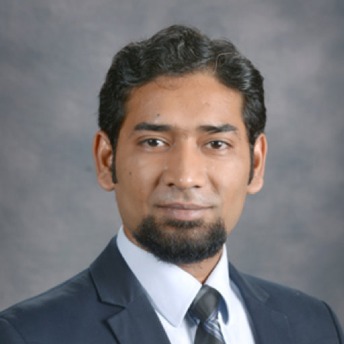Guest Seminar "Tales of Twisted Tessellations: Partitive Geometry & Its applications to Design & Manufacturing"
| When: | Tu 16-04-2024 13:30 - 15:00 |
| Where: | Energy Academy Europe room 5159.0114 |
Abstract
Natural systems, organic or inorganic, embody spatial growth as one of the working principles that is central to the development of complex forms with a wide range of mechanical functions. In this talk, we take inspiration from this tenet and investigate partitive geometry – a new paradigm for geometric modeling for design and manufacturing. Partitive geometry leverages the geometric principles of growth in physical, chemical, and biological systems and offers a new representation for complex 2D and 3D lattices. Starting with an example from the biological world, we will see how spatial growth manifests in animal skin cells and discuss computational schemes to capture this growth for designing a range of geometric structures. We will then develop the idea of partitive geometry in the context of designing topologically interlocking shapes and auxetic structures using spatial symmetries induced by textile weaves. The talk will expose these ideas through specific examples of structural (or architected) materials and path planning algorithms for cooperative manufacturing. Finally, we will look at partitive geometry from the broader perspective of fundamental geometric representations for generative design and manufacturing.
This seminar is organized by Dr A.O. (Anastasiia) Krushynska.

Vinayak Krishnamurthy is an Associate Professor and Morris E. Foster Faculty Fellow in the J. Mike Walker’66 Department of Mechanical Engineering and an affiliated faculty in the Department of Computer Science at Texas A&M University. He joined Texas A&M in Fall 2016. He earned his Ph.D. in 2015 from the School of Mechanical Engineering at Purdue University. Dr. Krishnamurthy currently directs the Mixed-Initiative Design Lab (MIDL) at Texas A&M University. His research is at the interface of geometric & topological computing, human-computer interaction, and artificial intelligence. He applies the knowledge gained in these areas to various domains such as metamaterial design, extended reality for design, computational fabrication, data-driven design, collaborative design, autonomous systems, surgical training, and engineering education. His dissertation research led to the commercial deployment of zPots, a virtual pottery app using Leap Motion controller in collaboration with zeroUI, a California-based startup. He is the recipient of multiple awards including the NSF CAREER award, ASME CIE Young Engineer Award, two ASME CIE best paper awards, and the Peggy L. and Charles L. Brittan Teaching Award for Outstanding Undergraduate Teaching and the TAMU Association of Former Students College Level Teaching Award.
